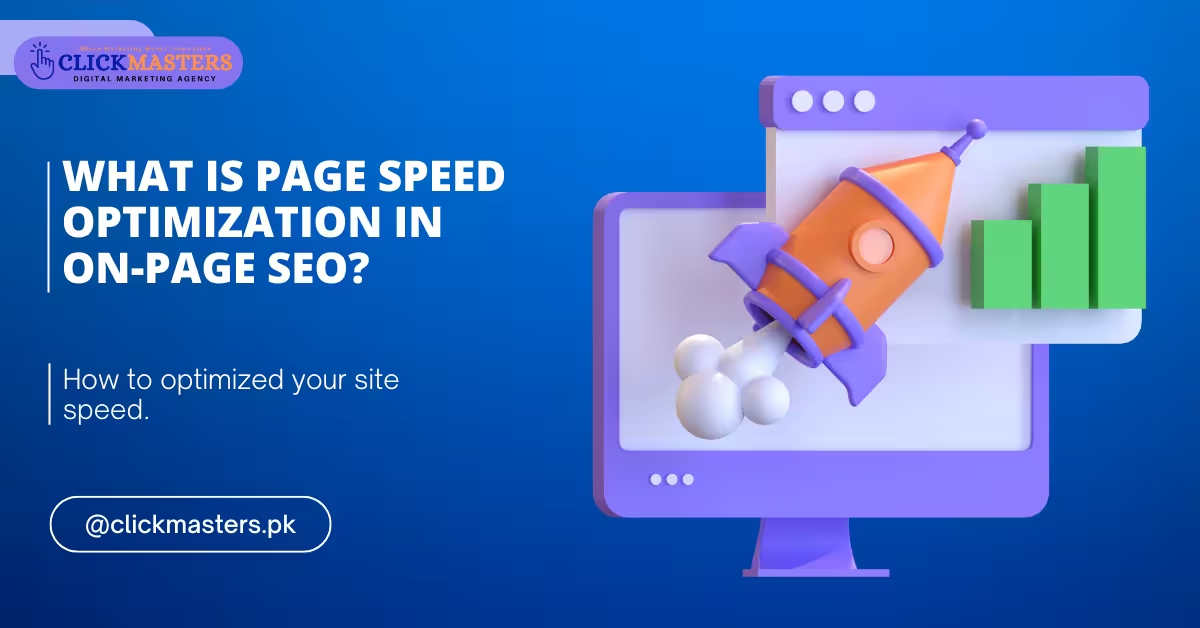In today’s digital world page speed optimization in on-page seo is measured by server response time and file sizes. scape, page speed optimization is important as it affects how well your website performs in search engine rankings. is key to improving page load time especially when you consider how slow page speed affects SEO is key to a smooth user experience and getting your website visible in search engine results, since speed is a ranking factor.
Search engines put user experience first so understanding how to improve SEO through page speed is key. Website speed affects SEO so it’s a major factor for online success. is key to reducing load time and user experience so it’s a vital ranking factor for mobile search and overall speed SEO. impacts your site’s performance is important for any online presence and fast page loads are a must for keeping visitors.
1. Understanding Page Speed and Its Importance
Page speed is the time it takes for a page to load and become interactive. It’s an SEO factor because slow pages lead to high bounce rates which affect user experience and engagement and therefore speed is a ranking factor. Studies show that a few seconds of delay can decrease user satisfaction and conversion rates.
Speed and User Experience
When users hit slow Load times are critical as they directly relate to the page’s loading speed and user satisfaction., they are more likely to bounce before the page fully loads. Google says the average mobile landing page takes over 15 seconds to load which is unacceptable for most users and highlights the importance of good page speed.
In a world where speed matters, optimizing your page speed is not just a technical issue – it’s a way to speed up your site, keep visitors, increase user satisfaction and get to the first byte faster.

2. Key Factors Affecting Page Speed
Here are the technical elements that affect page speed as a ranking factor:
- Server Response Time: How long does it take for your server to respond?
- Image Optimization: High-quality images can slow down loading times. Image optimization for the web is crucial for page speed, a ranking factor.
- JavaScript and CSS for page speed: Reducing the size of these files will speed up the loading process if your page takes more than 3 seconds to load.
- Content Delivery Networks (CDNs): Using CDNs will speed up by distributing content closer to users and, ultimately your average page load time.
Addressing these factors is crucial in achieving optimal page speed.
3. How Page Speed Affects SEO Rankings
Google takes into account page experience signals like page speed when ranking websites. speed is a technical SEO factor. A fast site will get you higher in the search results. Google says slow page load speed can hurt your search visibility and increase your page load time and with Core Web Vitals they measure user experience for loading, interactivity and visual stability which is all related to your site speed.
4. Best Practices to Optimize Page Speed
To optimize your site’s performance focus on page speed as a ranking factor for mobile and the time it takes for a page to load. to improve your page speed consider the following best practices to improve your website loading time and make speed the amount of time users are willing to wait.
- Optimize Images: Use compressed formats like JPEG or WebP for faster loading.
- Minimize HTTP Requests: Limit the number of elements on your page to reduce load time.
- Page’s load speed and user experience: This allows returning visitors to load your page faster by storing cached copies of your site.
- JavaScript: This loads JavaScript files in the background so they don’t block page rendering.
- Mobile Optimization: Mobile speed is crucial to ensure fast page load times on mobile devices which is a ranking factor for mobile search. Make sure your mobile page speed is also optimized as more users access websites via mobile devices today and page speed is one of the key factors that can improve your site speed.

5. Tools for Measuring and Improving Page Speed
Here are some tools to help you test and improve your page speed:
- Google PageSpeed Insights: Provides insights into your site and suggestions for improvement, especially on how page speed affects SEO.
- GTmetrix: Tests your site speed and gives you recommendations.
- Pingdom: Monitor your site speed and performance over time with speed testing tools.
Use these to test your page and you’ll see what needs improving.
6. The Future of Page Speed Optimization
As technology advances, so will page speed optimization. AI-driven optimization tools will be able to speed up your page and make your site competitive. Accelerated Mobile Pages (AMP) are designed to speed up your site and user experience. and Progressive Web Apps (PWAs) Faster sites are designed to speed up page and user experience. These will be the norm in web development and page speed will also matter.
7. Common Mistakes to Avoid in Page Speed Optimization
When you’re optimizing your page speed, don’t forget to watch out for these technical SEO mistakes that can slow down your page.
- Not Mobile Optimized can hurt your page speed and SEO: Not considering mobile users can hurt overall speed.
- Server Performance: A slow server can delay load times, which is important for site speed and overall website performance during a speed update.
- Image Compression: Uncompressed files can slow down your site which affects how fast content on your page loads.
Don’t fall into these traps.
8. Speed as a Ranking Factor
Search engines use multiple speed metrics to measure website performance. Knowing how these metrics affect your site’s rankings will help you optimize your SEO better. The correlation between user experience and ranking factors can’t be overstated; a faster site means happier users and better rankings.
Conclusion
Page speed optimization is important because it affects load time and user engagement especially if it takes more than 3 seconds to load. is part of on-page SEO that affects user experience, page speed for SEO and search engine rankings. By knowing the factors that affect page speed and implementing best practices you can improve your website’s performance, user satisfaction and SEO rankings. As technology advances, being ahead in page speed optimization and Improving your site speed will be key to staying competitive in the digital world.









